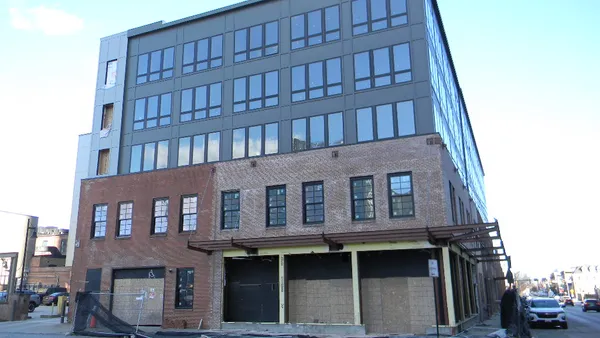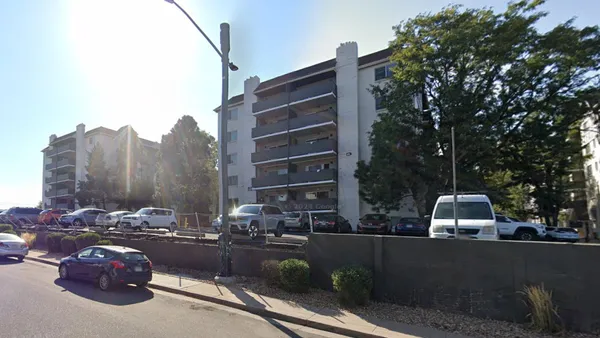On Nov. 5, voters decided not only the next president but the fate of over a dozen initiatives modifying state and local housing law.
Chief among them was California’s Proposition 33, which would have removed California’s limits on rent control in local jurisdictions but did not pass by a margin of over 1 million votes, according to the state government. Out of all the housing-related ballot measures, Prop 33 had gained the most media attention and had the most wide-ranging potential to affect the multifamily industry.
Voters approved eight out of 13 state and local ballot measures related to housing on Nov. 5 — among them new rent control procedures in Berkeley, California, and the repeal of just cause eviction and rent stabilization in Fairfax, California. Hoboken, New Jersey’s voters also rejected an ordinance that would have allowed landlords to raise rent on rent-controlled units above the previous limit when they came vacant.
Read on for the results of the housing-related ballot measures that were in play across the country. Note that all results are unofficial until they are certified.
Proposition 33
With 52% of the estimated total vote reported as of the morning of Nov. 6, Proposition 33 received over 5,680,000 votes no and over 3,540,000 votes yes, or 61.6% to 38.4%.
If approved, Prop 33 would have repealed the Costa-Hawkins Rental Housing Act, removing California’s limits on rent control in local jurisdictions.
Under Costa-Hawkins, rent control cannot apply to single-family housing or any housing built on or after Feb. 1, 1995, according to the California Legislative Analyst’s Office, a nonpartisan fiscal and policy advisor for the state legislature. Local laws also cannot dictate what landlords can charge renters when they first move in — they can only limit rent increases for existing renters.
In October, San Francisco passed a new rent control law designed to trigger if Prop 33 passes, according to the San Francisco Standard. Any localities with rent control in place when Costa-Hawkins passed in 1995 could not expand it to housing built after their existing limit — 1979, in San Francisco’s case. The new law would have extended the city’s cutoff year to 1994, amended from November 2024 in the original proposal.
Local measures
Beyond Prop 33, five local ballot measures aimed to change multifamily operations and the landlord-tenant relationship directly.
- PASSED - Berkeley, California, Measure BB. The city will use existing revenue to fund housing retention and homelessness prevention, remove certain rent control and registration exemptions, permit tenant associations and require owners to meet with them, modify certain eviction conditions, eliminate rent control suspension during high vacancy, limit the ways tenants can be charged for utilities and limit the maximum rent increase to 5%.
- NOT PASSED - Berkeley, Measure CC. If passed, the city would have used existing revenue to create a fund for rent payments to property owners, expanded exemptions from rent control, permitted tenant associations, modified certain eviction conditions, removed certain powers from the city’s rent board and raised the maximum rent increase to 7.1% from 7%. This measure conflicted with Measure BB — if both had passed, the one with more votes would have become law.
- PASSED - Fairfax, California, Measure I. Repeals the city’s Just Cause Eviction and Rent Stabilization Ordinance, replacing it with state law and prior town code.
- NOT PASSED - San Anselmo, California, Measure O. Would have required property owners with three or more units to provide longer notices, relocation benefits and right to return in a no-fault lease termination, as well as pay for temporary displacements.
- NOT PASSED - Hoboken, New Jersey, Ballot Question - Current rent control laws in Hoboken restrict rent increases to 5% or the Consumer Price Index rate, whichever is greater. However, if a unit has been occupied for three or more years and then goes vacant, a landlord can increase the rent by up to 25%. If passed, this ballot question would have allowed landlords to raise the rent on newly vacant rent-controlled units to market rates without restriction, regardless of the length of the previous lease, so long as the landlord made a $2,500 contribution to Hoboken’s Affordable Housing Trust Fund. The units would remain under rent control with increases restricted while occupied.
Affordable housing
Two statewide measures concerned funding or approvals for affordable housing specifically. They are:
NOT PASSED — California Proposition 5, which would have amended the state constitution to lower the supermajority vote requirement from 66.67% to 55% for local ballot measures related to issuing bonds for affordable and public housing. This would have had a ripple effect on future local ballot measures approving affordable housing funding.
PASSED — Rhode Island Question 3, which asked voters to authorize $120 million in bonds for housing acquisition, development and infrastructure, including $80 million for affordable housing development.
Local affordable housing ballot measures that passed include:
- PASSED — Baltimore, Question A. Allows the city to borrow up to $20 million to operate its affordable housing program.
- PASSED — Charlotte, North Carolina, Housing Bond Measure. Established a $100 million affordable housing bond, funded by an increase in city property taxes.
- PASSED — Los Angeles County, Measure A. Repealed the Measure H tax — a quarter-cent sales tax that would have expired in 2027 — and replaced it with a half-cent sales tax to support affordable housing, among other causes.
- PASSED — Oroville, California, Measure N. Approval of an 18-unit low-income housing property.
- PASSED — San Francisco, Proposition G. Appropriates at least $8.25 million per year to pay for rental subsidies for extremely low-income affordable housing.













